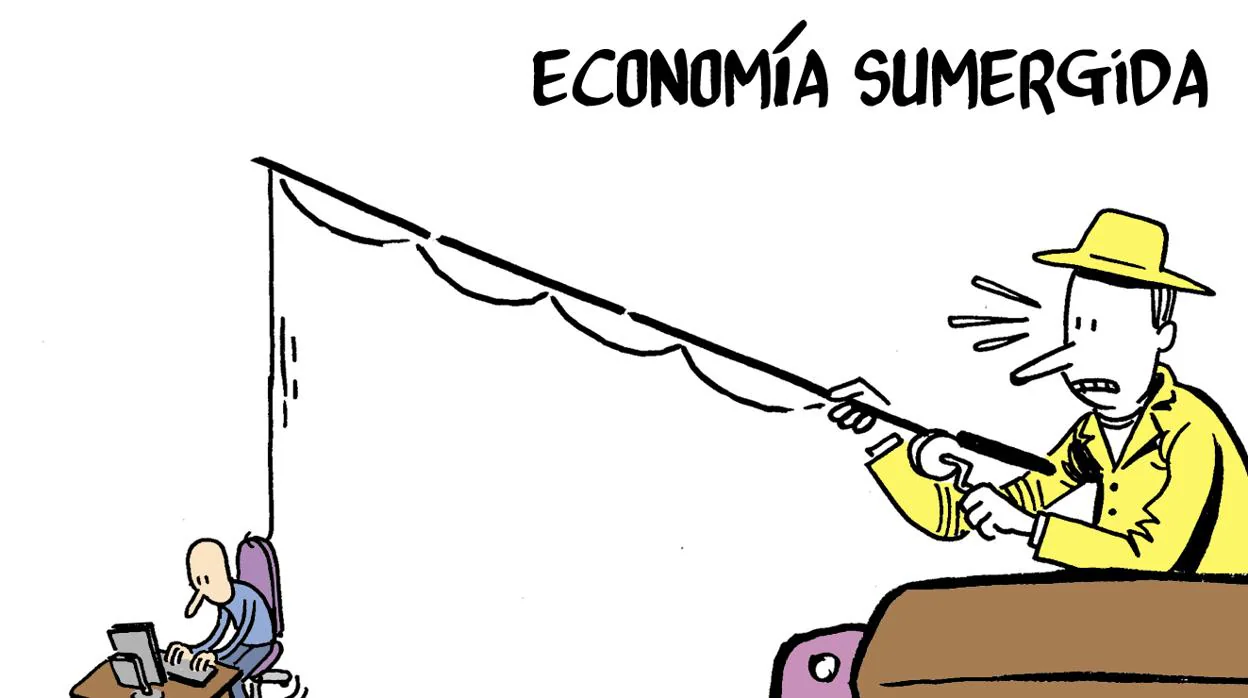The underground economy infected by the coronavirus

Updated:
save
If the underground economy is already a problem for any society and government, the situation worsens when, in a context like the current one, we pass the test and the result confirms what we were all suspecting: also this sector of the economy begins to suffer the consequences of coronavirus infection. Whatever the area that makes up the so-called shadow economy and, therefore, regardless of what it represents with respect to GDP based on the study we take as a reference, there is no doubt that it is a sector of the population that will be seriously affected .
The problem can be analyzed from two fundamental perspectives: social and fiscal. In the first place, from a social perspective, the declaration of the state of alarm has meant, for many, a total or partial paralysis of their work or professional activity. The State, in its most social aspect, has put in place protection mechanisms to partially compensate for the cessation of economic activity. Nevertheless, Those who until now lived under the shadow of the shadow economy will not be able to enjoy the benefits in equal measure They have been designed for the rest of society, and will be left without any kind of income, necessary in many cases for their subsistence.
Fortunately, and we know it from other situations of deep crisis that Spanish society has already faced, in a majority of cases it is the numerous private organizations and good people who put their little grain of sand to stop this situation and They manage to move forward a not inconsiderable number of Spanish families who are at risk of exclusion.
Regarding the fiscal perspective, the pandemic will double damage our public accounts. Firstly, it will be essential to face increased public spending in order to face new extraordinary social needs generated by the coronavirus. Likewise, the increase in the remuneration of the personnel at the service of the Public administrations that they have not interrupted their operation during this crisis (especially, the health personnel, the State Security Forces and Corps and the Army). It is inescapable that the management of this public spending is done in an efficient and exemplary manner. There are times when the credibility of the political class is at stake and this demand from Spanish society cannot be delayed for one more minute.
Secondly, when economic activity is paralyzed, the generation of wealth will decrease, reducing, consequently, tax revenues and our collection. In this context, the State cannot allow some citizens to take advantage of this situation. Now it is more reprehensible than ever that they increase their income through the underground economy, thereby circumventing their obligation to contribute to the maintenance of public spending. In this case, we are no longer talking about the subsistence minimum referred to above, but rather situations of undeclared economic capacity that seriously undermine the principles of generality, equality, progressivity and tax justice contained in article 31 of our Constitution. The public estate It must be relentless in order to avoid that these situations generate even more discontent in the population.
Consequently, a firm and committed solution is urgently needed in order to try to stop or, at least, cushion the consequences caused by this other pandemic, which is the shadow economy, and not only thinking about the interest that the Treasury has in detracting, for the sake of justice, part of the income that is necessary for the maintenance of public expenses, but to protect and care, in a Social and democratic state of law, to those who need it most now.
Ana de la Herrán Piñar is Vice President of State Treasury Inspectors










